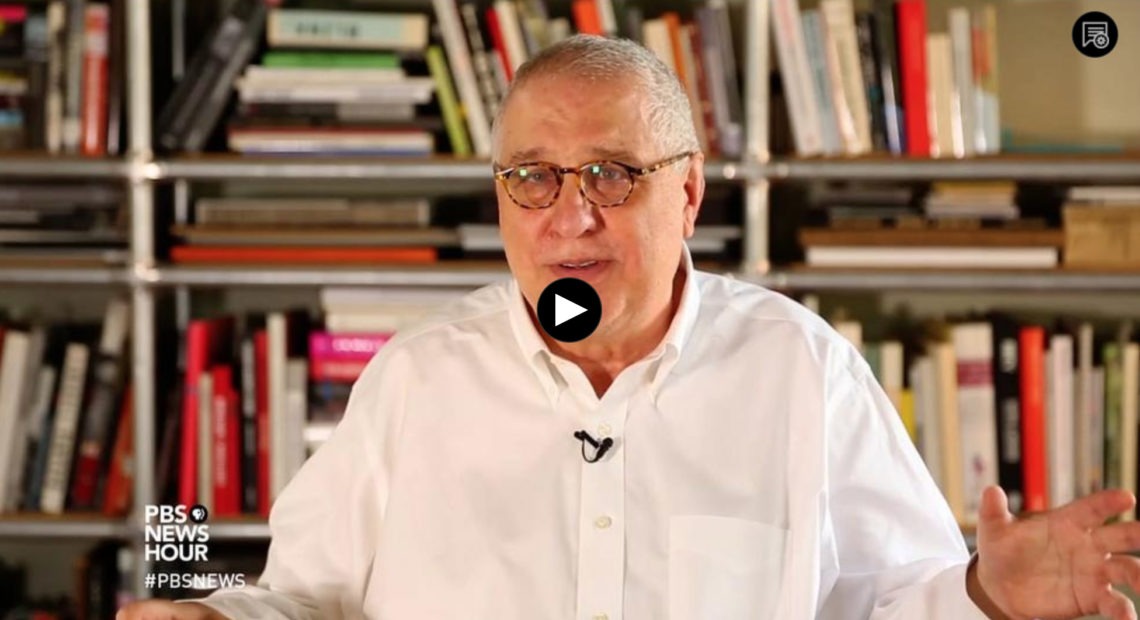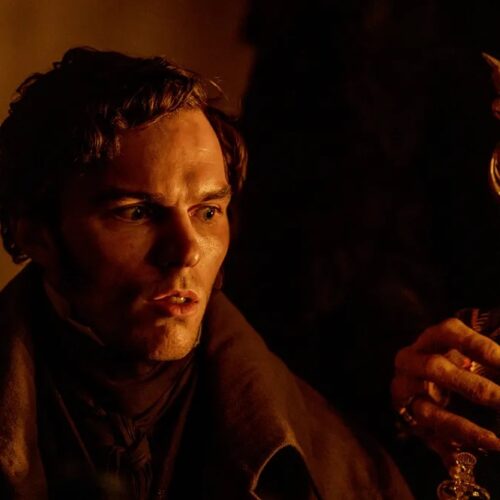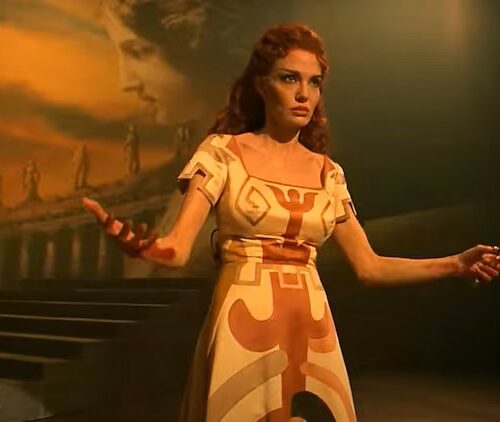
The Ugly Truth About Truth, According To Errol Morris
If your goal is to talk to another human being and hear the truth, Errol Morris says you’re going to be disappointed. The filmmaker explains why he broke the rules of documentary and why sometimes falsehood wins. Morris gives his Brief but Spectacular take on truth.
Full Transcript
Judy Woodruff:
Finally, another episode in our Brief But Spectacular series, where we ask people to describe their passions.
Tonight, we hear from award-winning filmmaker Errol Morris. His documentaries include “A Thin Blue Line” and “The Fog of War,” which earned him an Academy Award.
Morris’ latest project for Netflix is “Wormwood.”
Errol Morris:
If your goal is to talk to another human being to hear the truth — and I don’t want to depress you — you’re going to be sadly disappointed.
I’m very proud of this film I made, now close to 30 years ago, “The Thin Blue Line.” An innocent man in prison who had been sentenced to death for the murder of a Dallas police officer, Robert Wood, I was able to prove that this was a terrible miscarriage of justice. He didn’t do it.
One of the central pieces of evidence came out in interviews. So, the chief prosecution witness at this capital murder trial, out of nowhere, tells me that she had failed to pick out the defendant in a police lineup, forgetting that she had testified to the exact opposite.
The reenactment is, to me, this powerful tool for thinking, because I used to be a private detective years ago. You use everything in an arsenal of tricks to try to figure things out. You reenact it, and then you start to think, could this have happened that way?
The critics of the movie, the reenactments, how dare you? How dare you put this stuff in your movie? What were you thinking? Were you thinking?
Yes, I was thinking.
Robert S. McNamara, I made a movie about him, “The Fog of War.”
One of the very first things that he said was that our side won. If we had lost, I would have been tried as a war criminal, a kind of naked honesty that we so rarely expect or ever see from public figures.
Rumsfeld was so difficult. Everybody is an unreliable narrator. One of the questions that people asked me repeatedly was, why is Rumsfeld talking to you? He likes to hear himself talk. There’s something to be said for that. I like to hear myself talk, too.
From the very beginning of my career, I broke all the rules, consciously, no handheld camera, no available light. And I started to think about what guarantees truth. And I decided, none of that stuff guarantees truth. Style doesn’t guarantee truth, and truth isn’t handed to you. It’s pursued. It’s a struggle.
And, sometimes, falsehoods wins. That’s the ugly truth.
My name is Errol Morris, and this is my Brief But Spectacular take on truth.
Judy Woodruff:
Makes me want to go back and watch both those documentaries.
You can watch additional Brief But Spectacular episodes on our web site, PBS.org/NewsHour/Brief.
Related Stories:

Award-winning actor Adam Beach visits Toppenish
November is Native American Heritage Month. In central Washington, different events celebrate these communities. On Friday, Nov. 22, Heritage University will host the award-winning actor Adam Beach in Toppenish His visit is closing out the university’s events recognizing the Native American communities’ contributions.

Ruiz shares immigrant laborer stories in ‘We Had Our Reasons’
Award-winning poet Ricardo Ruiz focuses on telling the stories of his community, for his community. NWPB’s Rachel Sun interviewed Ruiz about that work, and his approach to collaborative storytelling through poetry.

Ricardo Ruiz comparte historias de trabajadores inmigrantes en ‘Teníamos nuestras razones’
El galardonado poeta Ricardo Ruiz se centra en contar las historias de su comunidad, para su comunidad.












